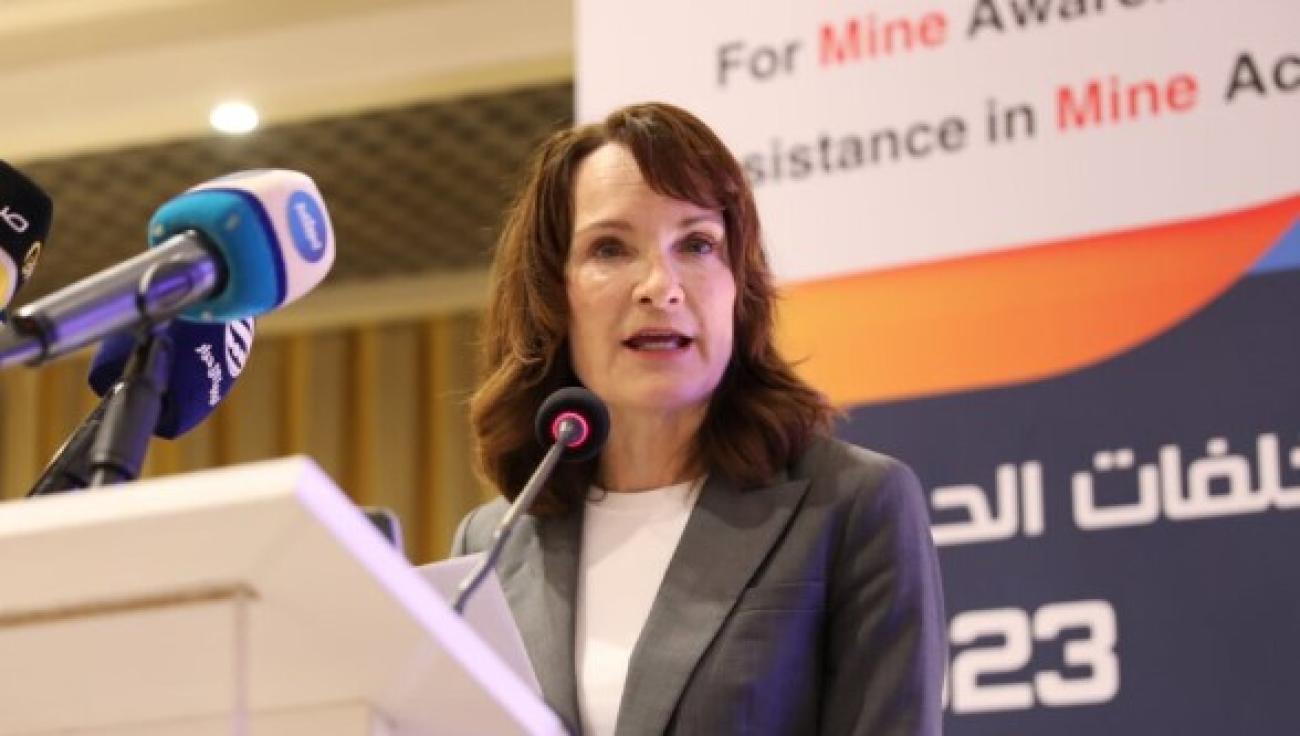To recognize the critical work by Libyan partners to clear mines and explosive remnants of war across Libya, representatives of the Government of National Unity, the Libyan Mine Action Centre, UNICEF, the UN Mine Action Service and the United Nations Support Mission in Libya came together to commemorate the International Day for Mine Awareness and Assistance in Mine Action in Libya on 2 May 2023.
In 2022, Libyan partners cleared and destroyed some 18,000 explosive ordnances and deemed 2.3 million square meters of land safe. However, over 15 million square meters of land in southern Tripoli alone have been designated as suspected or confirmed hazardous areas, with the country continuing to have one of the largest stockpiles of unsecured arms and ammunition in the world.
“Unexploded ordnance devices often threaten the most vulnerable people: families travelling to markets, internally displaced persons returning home, and children going to school or playing,” said Deputy Special Representative of the Secretary-General, Resident and Humanitarian Coordinator for Libya, Georgette Gagnon. “Since 2020, more than 369 people have been victims of explosive ordnances. It is critical the Libyan government and international partners continue to work together to provide the resources needed to drive mine action efforts in support of a peaceful and stable Libya”.
Since 2011, Libya has seen several waves of unrest and active conflict. The most recent armed clashes and the use of weapons in civilian areas has worsened the contamination of explosive remnants of war in urban areas. In August 2022, armed actors clashed in Tripoli and surrounding areas using medium and heavy weaponry, often in civilian areas that resulted in civilian casualties and left large amounts of unexploded ordnance.
“Action on mine clearance cannot wait,” said Brigadier Ahmed Shaybani, Director of the Libyan Mine Action Centre who opened the event following a moment of silence to recognize people who lost their lives to mines in Libya in 2022.
“Delays in mine action mean a delay in safe public services and economic progress, and costs lives,” he said, adding that 20 teams of local and international units were on the ground helping people avoid the risks of mines across the country.
There are currently 130 task orders for implementing work managed by the Libyan Mine Action Centre through local and international partners. Representatives at the event raised concerns that work in the Al Juffra area of Libya is limited due to a lack of resources with expectations the area will become the biggest challenge in future with the potential for loss of life.
“Increased investment for explosive ordnance clearance in Libya is needed, especially in urban areas,” said Acting Chief of the UN Mine Action Programme in Libya, Sharmeela Aminath. A request to increase funding for mine action by $2.4 million was echoed by UNICEF’s Libya Representative, Michele Servadei who stressed the funds were needed to reach an additional 450,000 people, 270,000 of which were children with explosive ordnance risk education which is the “first line of defense.”



